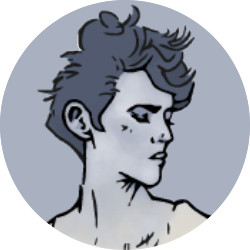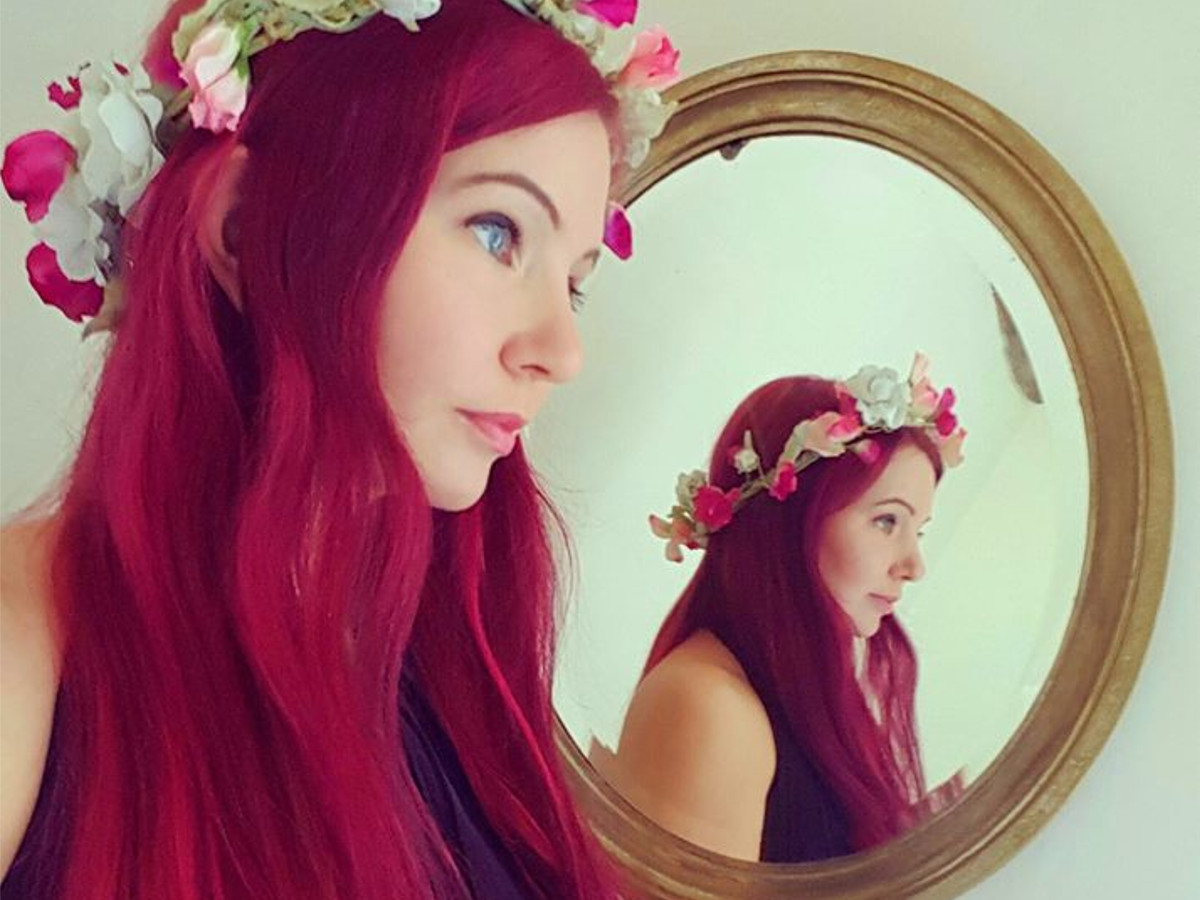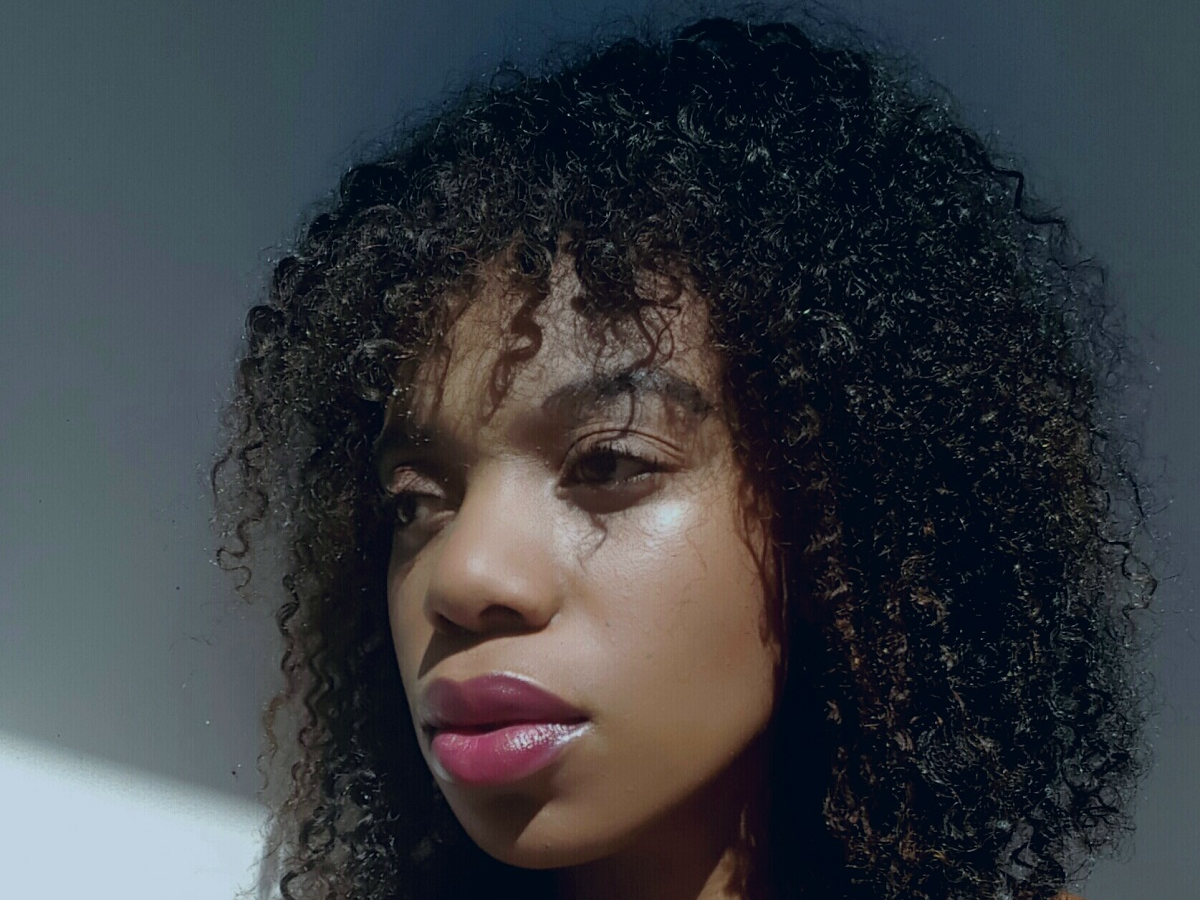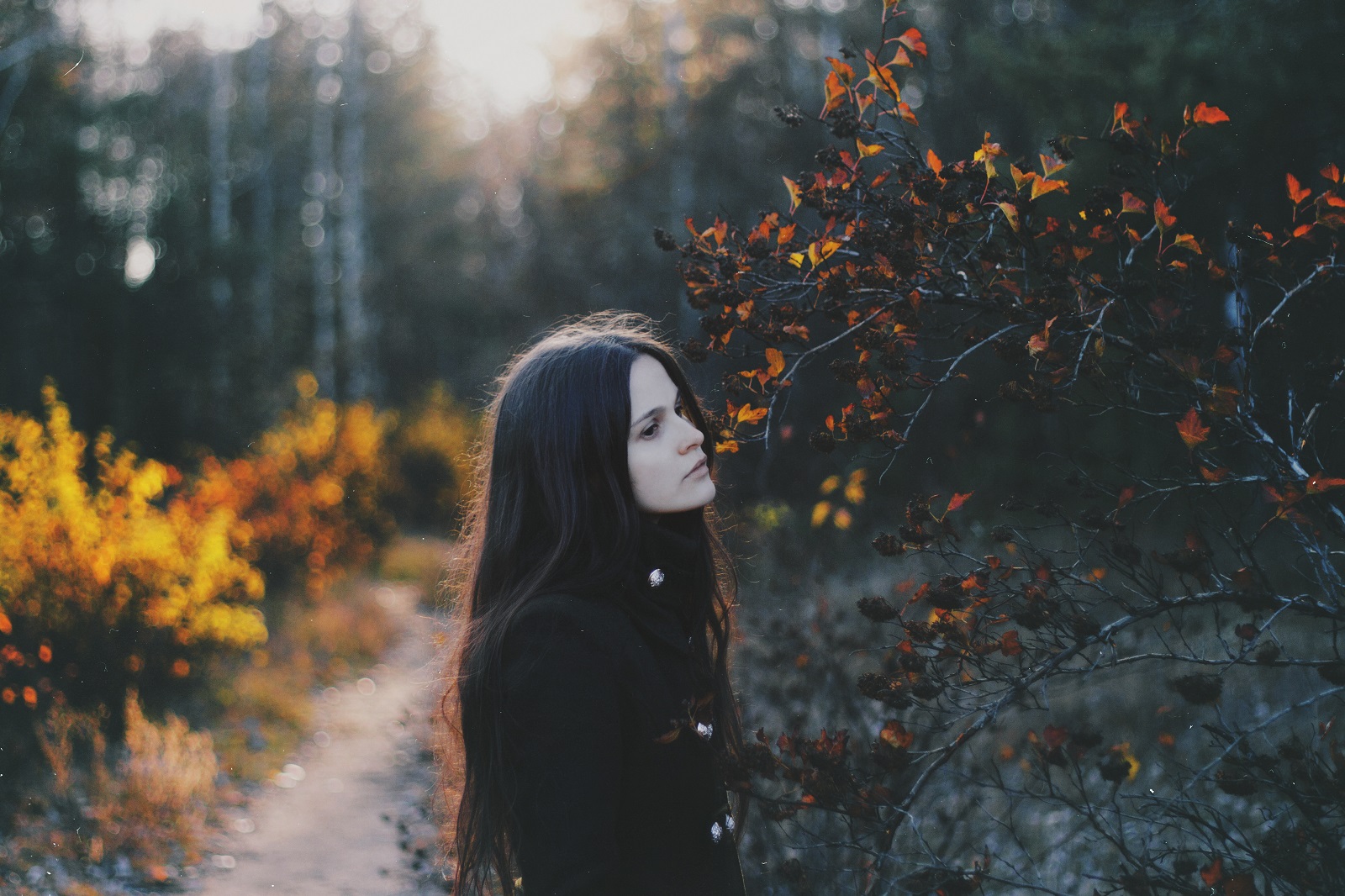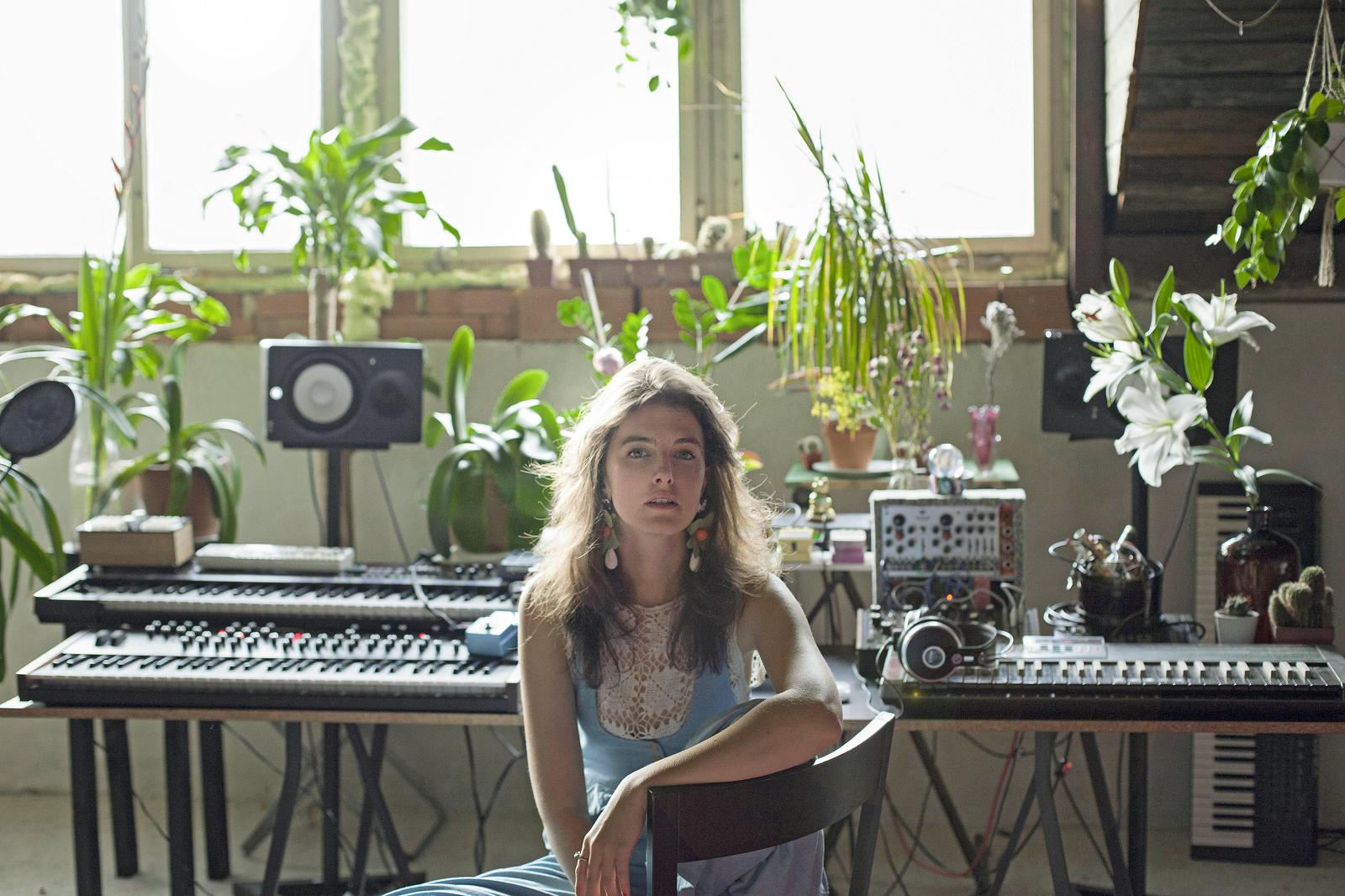 Photo credit: Michaela Karásková
Photo credit: Michaela Karásková
The Interview
How long have you been writing songs for, and what was is that inspired you to start?
Sára: I think when I was about sixteen or seventeen. I was studying music — singing as the main subject — and had piano lessons once a week. When I was rehearsing piano, I started to get easily bored with it and started developing my own harmonies and melody. It started coming to life. These were the first sketches of songs. I would say the most important moment was when I was about nineteen or twenty, and I decided, “Okay, I’m gonna finish a song and maybe play it to somebody one day.” But I was always really shy about playing my songs to people, so it took me a really long time to gain the confidence to play my songs somewhere other than home. In school, I was used to singing other people’s songs — songs by Norah Jones or Diana Krall — and at a certain point it started to feel very unnatural for me. I really love them, but I thought it would be nice to be able to sing my own stuff — that was the drive, the reason why I started.
Was there anything in particular that helped you to build your confidence in those early days?
Sára: Yes. There’s one café here in Prague — it’s called Café v Lese — and, back in the day, I was just jamming there with my best friend, Káča, who I’m also in a band with as a duo, playing our songs that we never played to anyone. This guy who runs the space approached us and said, “This is so good. Why don’t you have a concert here?” So we played a show there, and another, and another… From that moment, it started happening more frequently that people reacted positively to my songs, so that built some kind of confidence and good feeling.
So, what is your songwriting process, and how long does it take for you to fully develop an idea?
Sára: Well, I used to sit at my piano and just play and jam until something strikes me. Now I am going through the same process with synthesizers. That’s the reason why my new album is based only on the synth sounds. It replaced my traditional instrument, which was piano. I always come to the instrument, and I start to play and jam. I sometimes play chords that make sense; sometimes I play things that don’t make sense, and I just listen and try to get really lost and natural. Whatever makes me feel good I play again — it always leads me to the next step. Sometimes it’s happening so fast and the song grows from itself so fast, but sometimes it takes more. I’m just following my intuition in feeling the harmony and the melody. If I feel like it’s strong and it corresponds with my emotions, I continue and record it.
With the piano, I think it was easier to finish a song, because I didn’t need to do the whole arrangement with the synths and drums and everything. Now, it’s more about finding the right colours, the right sounds — it takes more time now because there are a lot of layers and structured things.
Have you found it easy to get to grips with all the technical stuff?
Sára: No. [laughs] It was not easy. It was actually a big challenge for me. When I start to feel that something comes easy for me, I wouldn’t say I get bored, but I want to go somewhere further and learn something I don’t know yet. It took me a long time — I was learning production, synthesis… and I still am. Learning is a never-ending process, which I love. So all these things became another ability I could get myself comfortable in and could use the language of to bring my feelings, emotion or fantasy to life. It’s really good to learn with different kinds of instruments. I would really like to learn properly to play the bass guitar, because I get fresh ideas of melody and harmony when playing it. I think it also cultivates and spreads your fantasy when you learn another instrument.
Does creativity come easy for you then? You seem like a very creative person.
Sára: Thank you. [laughs] Sometimes it’s so easy, but there are days when inspiration just doesn’t click. I get very easily lost in my head. All the time. I really like to find my own special places and atmosphere and transform them into sound. I like to write about my experiences, moods, feelings: things that had some special impact on me through the time. Or, sometimes, I love to look — in my studio and also in my room, I have photos and small pictures of my favourite paintings and they also kind of massage my fantasy and take me to different spaces. There are so many things that inspire me, it’s hard to put into one thing. [laughs] Nature. Nature inspires me a lot too. The sea, mountains, water, horizons.
Is there a particular mood you tend to be in when you do your best writing?
Sára: Melancholy is the creative mood for me. I really feel kind of happy — [laughs] — or satisfied in this setting. It’s beautiful when it’s raining outside. It can be outside in nature, or just being cosy at home and looking outside. I love the sun — I really do — but this misty, stormy weather, this atmosphere… it makes me feel like there is something special going around. I don’t know how to describe it. So, I would say in music it’s the same kind of feeling. When I feel it abstractly, in my mind — in my subconscious or conscious or whatever that is — that’s the time that I want to make music because that’s the time when I feel most connected to myself and most comfortable.
When you’ve just been through an intense period of writing, how does that affect your mood subsequently?
Sára: I think I get deeper in that feeling, but I wouldn’t say it changes its character —- it just spreads, probably. It’s about the amount of time, sometimes. When you want to do things properly, you need to spend time working on them, so as I’m spending time working on something or in this state of mind, I think it shows me more things that are there that I didn’t know about before. It’s like if you went into some cave, and you were going farther and farther — you start seeing more things, more paths.
Are there any obstacles you face, creatively?
Sára: I recorded this album in my studio, which is in a big attic at my friend’s house. It’s in Prague, but you feel like you’re somewhere else, because the house has a big garden, and when I was there for three days, I didn’t need to go anywhere. I easily forgot the city existed — that anything outside this house existed. It was a kind of isolation, but there were still friends living there and visiting, so people were still around. But I could go upstairs and be just by myself. This was really important, because sometimes when I hear something, my subconscious catches it and it has an impact on me, naturally. I didn’t want this to happen while recording this album, I wanted to find my own thing, which would be miles away from anything.
Which is not, of course, possible, because I have a very wide listening history in my head. But in the moment of composing this album, I wanted to cut my ears from these things, and I made a really cosy space in this studio — I put plants there and all these candles — which felt really good, and it was like my little room which was exactly the way I felt. It had the same energy as myself.
How do you maintain interest in your art when the initial joy of inspiration wears off or you’re struggling for ideas?
Sára: It’s hard. That’s a hard feeling, because sometimes you just hear that you’re making bad stuff, and maybe you’re making bad stuff for a week. Or you have a song, which is kind of good, and you know where you want to have it, but you cannot reach it. So, the only things I’m always trying — two totally opposite things. One, is what I start with: I try to work on it every day and just don’t care — don’t think of yesterday and that it was bad; let’s try one more time. Okay, it’s bad again; let’s try tomorrow. But, when this is going for too many days, or is getting really hard, I stop and I go and do something different. I don’t listen to the song for quite some time, and try to free my head — it can be going on walks in nature, or anything, but not music. That isn’t like ‘don’t do music for a month.’ That would be too much time for me — it’s always a few days. Sometimes it’s good to not let go, but it’s sometimes also important to do it, to really clean your mind and start from scratch.
Is there anything that bothers you about the genre of music that you’re a part of?
Sára: The thing I face sometimes and that makes me uncomfortable is when something’s too easy. Now, we have the programs, which are not so hard to learn, and there are software instruments which you can just use like this. There are many ways that can make your process so fast, and I think that’s great in one way, but I think at the same time, it’s really hard because you can get lost in it, and it’s much harder to find your place and your sound, and maybe even your calm space — it’s sometimes so fast and so easy to use. I think that’s maybe something that I struggle with, but it’s not positive or negative — it’s this ambivalent feeling.
In contrast, what do you really love about your style of music?
Sára: The freedom. [laughs] It’s maybe this love-hate relationship with the accessibility. It’s just you, and you need to know how to take care of things. This is so great, but sometimes it’s so scary. I love it — it’s the thing that can bring you so much happiness, so much peace and so much freedom — but at the same time, you have to take good care of it so it doesn’t eat you. [laughs]
What effect has singing in English had on your ability to connect with your potential audience in the Czech Republic?
Sára: This is actually a good question, because this is a question which is, for the past few years, really spoken in Czech Republic, and many people have a problem with: bands singing in English. I never know what to answer. I was thinking about it for a long time because I want to have an answer, but it always came natural to me, and I think this is because I was never listening to Czech music when I was little or a teenager. I started listening to the music that my parents were listening to. They’ve always had a good taste in music, which I hated when I was a child, but I think it had a big impact on me when looking back on it now: Bob Dylan, Nick Cave, Radiohead, Sade. Then I started to find my own favourite music through MTV. What was on the radio in Czech wasn’t good and wasn’t pleasing my ears — it was these commercial radios, and at that age I was too young to listen to underground stuff, which had for sure something interesting to say in that time. There were alternative radio stations but I, as a child, didn’t know about them, and I think even if I knew, at 7 or 8 you don’t tend to listen to punk or political folk or whichever alternative music.
To be honest, from when I was a child, I was building this idea of music that (Czech language in music) was something that I didn’t want to have anything in common with, because it was the language of commercial stuff for me. That’s because I didn’t know much interesting non commercial music. I started discovering them in my teenage years. There are two really extraordinary women: Hana Hegerová and Marta Kubišová — they sing chanson. They’re amazing. They were the starting point of listening to songs in my native language. But my ears by than were much more used to English in music, and probably that sticks with me until now.
With the audience, English is more like an off thing here; I keep hearing that I should sing in my native language, all the time. I really like some of the music that the Czech bands in the Czech language are making now. It’s amazing and I love to listen to them. The thing is that I never cared; I never had the idea in my mind: Should I choose Czech or English because of this or because of that? I just did it as it was natural, because I sang in English in school, and listened to music in English. So it was never a thing of deciding.
I found this girl, a really great musician from Kosovo, two days ago — she’s amazing. She’s singing in her language. It’s kind of folklore but electronic, and it’s really great music. There are so many beautiful songs and emotions in music from all over the world — in English, and not in English — I just never really realise there is some difference when I hear words. I don’t care. It’s all music — that’s my native language for expressing myself.
Do you think it would be difficult to make the transition to singing in Czech now, given that you do have an audience that extends beyond the Czech Republic? It wouldn’t cut you off from that audience, but maybe it would make it harder to connect?
Sára: Maybe. I don’t know. I never think this way, so if at some point singing in Czech — I don’t know what would need to happen, but it could happen — becomes an urge and is something natural for me in music, then I would probably not think about this and just go with the flow. Because, I really just follow the emotion that I feel from the song, so I would hope that the people still listen to the music and get some feeling of something that’s hidden outside of the words in the musical part.
It would also mean, if I did choose Czech, that I would have to write lyrics first, and that’s not my thing. For me, the harmony and melody and emotional meaning always come first.
Do you have any fears that being an artist brings into greater focus?
Sára: Yes. Music is such a sensitive thing. I’m writing about things that are inside me and are very complex, so I think there has to be these things as well as the positive things. To many people, my music seems dark. I don’t feel it like that as much, but I must say, I like music that sounds dark or more sad. But it doesn’t make me sad. That’s the the thing: this music makes me feel good and emotional — that’s what I like. [laughs]
Finally, to what extent would you like your creative output to define you as a person?
Sára: I have it on the same level. My music is the same as I am in person. I don’t want to play any roles. It’s the kind of thing you need to work on, but I think it’s a good path to choose: to try to be as natural and as much who you are that you can be.
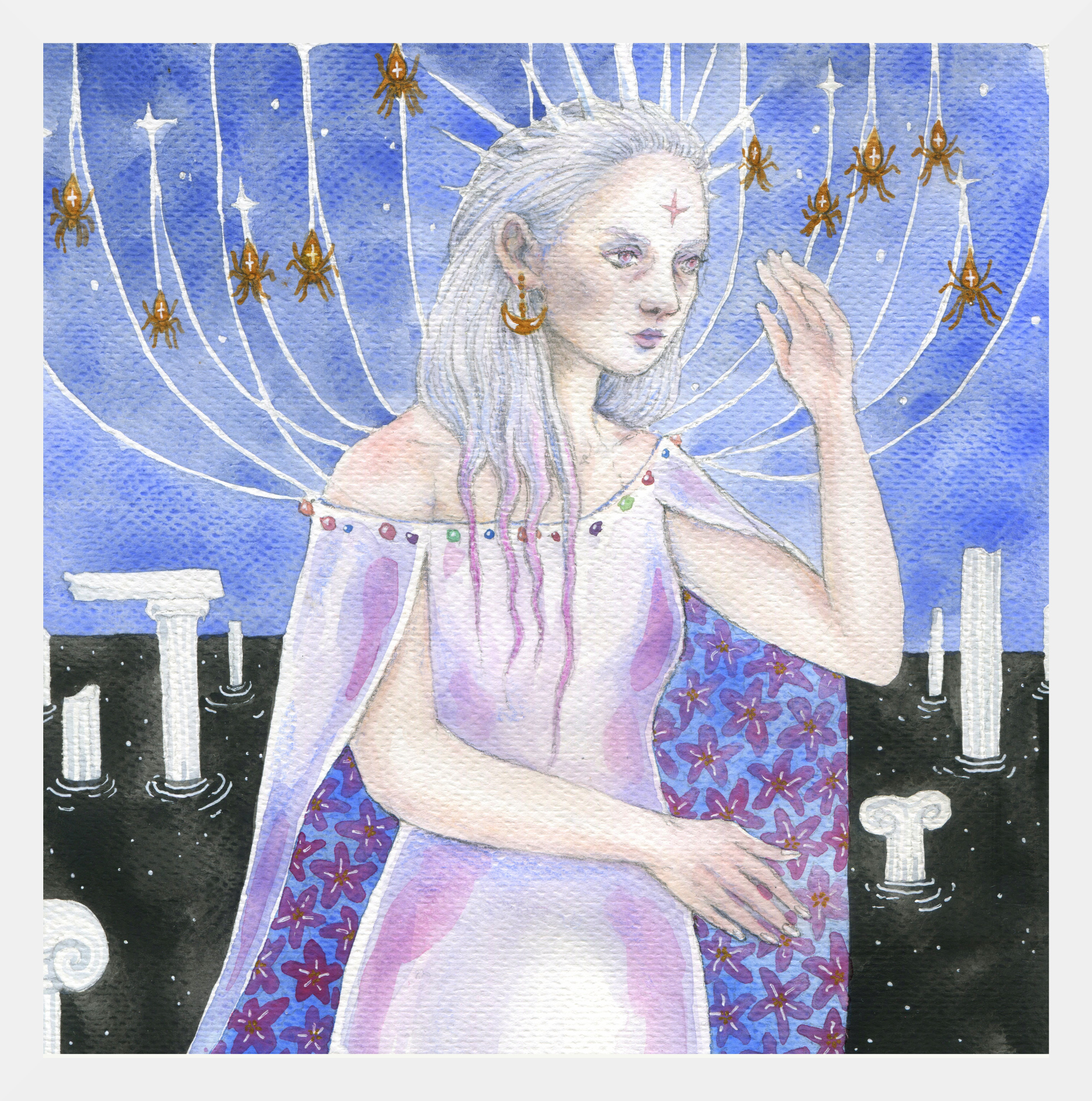 Never Sol featured onOneiric Escapism 4
Never Sol featured onOneiric Escapism 4You can stay updated with Never Sol on Facebook and Instagram, and stream or purchase her music over on Bandcamp.
If you enjoyed reading this interview and happen to think we're doing something right, please consider sharing the link -- whether on social media, or just with a friend, it'd really help us out! We're also on Facebook, Instagram (@alonelyghostburning) and Twitter, so if you'd like to keep up-to-date with the publication of new content, and also provide us with a whole heap of motivation, please do give us a like or follow.
